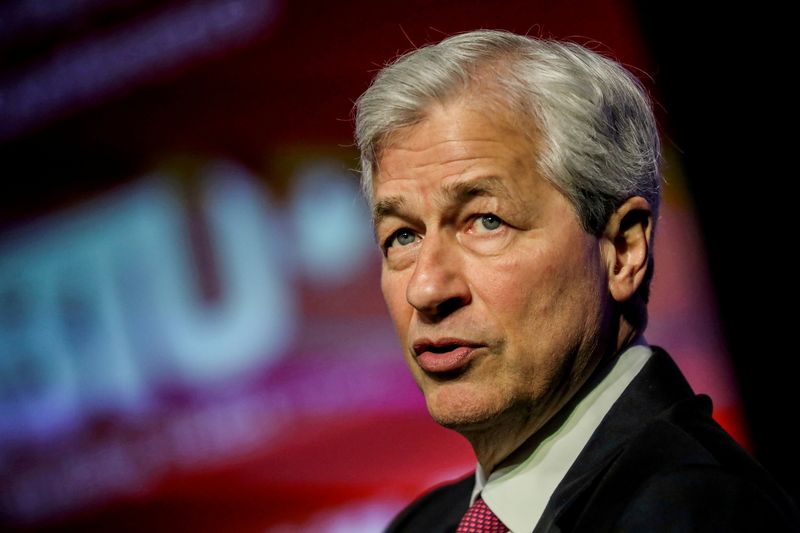Street Calls of the Week
Investing.com – JPMorgan Chase (NYSE:JPM) CEO Jamie Dimon warned that escalating trade tensions, high fiscal deficits, and geopolitical instability could trigger sustained inflation, market volatility, and economic uncertainty.
In a closely watched annual letter to shareholders released on Monday, Dimon said the newly announced U.S. tariffs risked becoming "one large additional straw on the camel’s back" for the global economy.
“Whether or not the menu of tariffs causes a recession remains in question, but it will slow down growth,” he wrote.
He noted that while some see legitimate reasons for the measures, the short-term effects could be inflationary.
“We are likely to see inflationary outcomes, not only on imported goods but on domestic prices, as input costs rise and demand increases on domestic products.”
Dimon highlighted the uncertainty surrounding potential retaliatory actions, investor confidence, corporate profits, and the strength of the U.S. dollar.
“The quicker this issue is resolved, the better,” he said, warning that cumulative damage could be hard to reverse.
He also reiterated concern over America’s rising fiscal deficit, calling it “the highest peacetime level ever not driven by recessionary needs.”
Dimon warned the current path of deficit spending, coupled with quantitative tightening, adds to uncertainty around interest rates and asset valuations.
“Our economy also faces the unknown effects of quantitative tightening… we have never had this much quantitative easing and, therefore, quantitative tightening before,” he said, adding that this dynamic could lead to higher Treasury market volatility.
Dimon noted that inflationary pressures remain despite recent easing.
“Most of what I see in the future is inflationary,” he wrote, citing remilitarization, infrastructure demands, and shifting trade structures.
On interest rates, he emphasized that while the Federal Reserve controls short-term rates, long-term yields remain driven by inflation expectations and global capital flows.
“This tug-of-war can go on for some time,” he said, warning of the risk of a repeat of 1970s-style stagflation.
Despite these challenges, Dimon expressed confidence in the long-term resilience of the U.S. economy.
“Even with fairly extreme outcomes, our company would remain healthy,” he said. “I still have an abiding faith in America—the exceptional strength of our innovative economy and our resiliency.”
